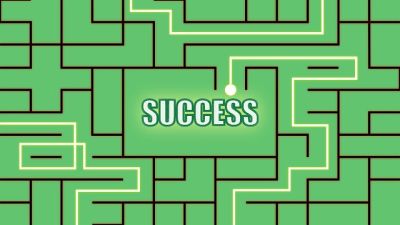5 Myths on How to Patent an Invention
 Protecting your intellectual property is never easy; It takes your time, effort, and money to preserve the essence of your invention. Just like a game, every move needs your attention and critical thinking to ensure a winning step and to advance against your competitors.
Protecting your intellectual property is never easy; It takes your time, effort, and money to preserve the essence of your invention. Just like a game, every move needs your attention and critical thinking to ensure a winning step and to advance against your competitors.
Today, you are currently enjoying the fruits of patented inventions — your expensive gadgets, high-end home appliances, automobiles, and among others. They have the best user interface that you would ever love.
In reality, you only love the brand, but often overlook how it started, struggled, and succeeded against criticisms in the world of patents.
If you are a patent enthusiast, an aspiring inventor, or a reader who loves to unveil the realities of patents, we will help you debunk the myths. This article is your guide towards a better understanding of patents and how it transforms the world from a real perspective.
Setting Proper Expectations is the Key
Your endless curiosity for scientific improvements pushes you to materialize your ideas. Due to the demand for new and unique innovations, large-scale companies in commerce are now eyeing on your inventions. Now, the question is: Are you ready for the next level of the business?
TV ads or email marketing campaigns might have told you to become rich when you get a patent. Yes, it is not impossible. But most of the time, these fake gurus and professionals who don’t have experience in patent litigation offer false hopes, rather than teaching you to properly execute your ideas in filing a patent application.
Here are five myths you should notice in patenting an invention.
5 Myths on How to Patent an Idea
#1 Myth: “Before applying for a patent application, you have to create a prototype, which consists of the parts of inventions.”
General Rule: The USPTO doesn’t require any prototype to prosper your patent application.
It is enough to provide a drawing or a specimen, depending on your patent application. Also, your patent attorney will help you with the specificities and technicalities of your invention.
#2 Myth: “Patent attorneys will copy your idea; they will imitate your patent details and file for their sake. As much as possible, don’t disclose your invention for your security.”
General Rule: The second myth might be a prejudice against patent attorneys; again, this is not true.
A patent attorney has no vested right nor the legal standing to imitate your idea. Your invention is your intellectual property derived from your efforts and labor. Hence, a patent attorney only provides legal opinion and guides you to complex processes in the patent application.
#3 Myth: “The more people who know your unpatented invention, the more it gains public credibility. While it benefits public approval, it also increases the marketability and patentability of your application.”
General Rule: Disclosing your unpatented invention to the public ruins your goal to have a successful patent application. Remember, novelty matters. Meaning, your invention should not imitate a prior art.
J.D. Houvener, a Patent Attorney serving Los Angeles, reveals that disclosing, trading, or sharing your invention to the public, more than a year ago before its application, loses your patent eligibility.
What does it mean?
It means that the patent law provides that an inventor has 12 months to keep his invention confidential for novelty purposes. Otherwise, you’ll disbar in advancing your application.
#4 Myth: Because your invention is the U.S. registered patent, you can easily transact business and sell it in the European Market.
General Rule: Patents enforce territorial rights. It only binds to the law of the issuing country. Otherwise stated, if you have a U.S. registered patent, then only the U.S. law can be enforced.
Thus, there is no such thing as “global” patent protection. However, to ease your foreign patent application in other countries, the European or International (PCT) patent applications can be enforced.
#5 Myth: “Even if it is still a mere concept, protect your ideas. Don’t let anyone know about it, unless you have patent protection. Whether big or small, raw ideas are patent-eligible.
General rule: Ideas can’t be patented, but inventions can be.
To have an invention, you must know how your idea will work. Like tables without legs, your raw idea cannot stand without a particular system or process to begin.
If you’re looking for a patent team that conducts a patent search using state-of-the-art facilities, then Bold Patents is for you!
Bold Patents is a client-first patent firm that helps inventors and business owners to secure top-quality patents on their inventions. No paralegal. No false hopes; a law firm that exercises the patent-success matrix.
Book your free consultation and avail unlimited perks for your future!
Key Takeaways
Indeed, the instinct of endless curiosity pushes humanity to evolve intelligence, upgrade capacity, multiply complexities, and discover ideas. Through time and space, the goal of a human is not only to live but also to protect its intellectual property as part of his existence.
Protecting intellectual property is never an easy task; it demands your time, money, and skill. It’s not a one-time task. Rather, it requires a sustainable amount of plan to maintain the uniqueness of your IP.
Rumors are creating barriers for you to not invest in protecting your invention. But always choose to hear facts and protest against pretenses. Hence, here are five myths you should take note on patenting inventions:
- A prototype is a requirement for filing a patent application;
- A patent attorney will steal your idea;
- Sharing your ideas on different platforms increases your invention’s patentability and marketability;
- The U.S. registered patent is enforceable to other countries; and
- A mere concept is patentable.
 Author Bio
Author Bio
Alejandro is a freelance writer, who collaborates with aspiring authors and editors for the past 3 years. He is passionate about equality and human rights. He intends to pursue a career in law.






